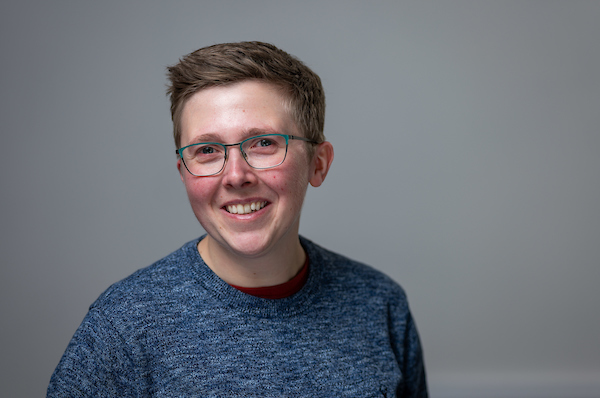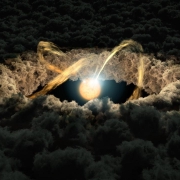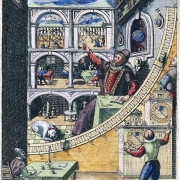Friday 5th September 2025 Flip it and reverse it: probing the origins of oblique planetary systems
Dr Claire Davies, University of Exeter
Friday 5th September 2025 7.30 pm in the BRLSI, Bath, and on Zoom
The image shows a star surrounded by a protoplanetary disk. Accredited to NASA.
The field of exoplanet detection and characterisation has bloomed over the past couple of decades and a wide variety of systems have been discovered, often widely different from our own. These have presented challenges to our understanding of how stars and their planetary systems formed, which were based on our neatly configured Solar System, where the planetary orbits align with the Sun’s equator. In this talk, I’ll present an overview of theoretical predictions of how planetary systems can become misaligned, as well as observational evidence that suggests a planet’s skew-whiff axis may originate from warps and tears in its natal proto-planetary disc.

Dr Claire Davies is a Senior Lecturer in Physics and Astronomy and Director of Equality, Diversity and Inclusion for the Department of Physics & Astronomy at the University of Exeter. She obtained a PhD in Astronomy from the University of St Andrews in 2015 and has a research background in high angular resolution observational studies of star formation. Claire is an outspoken advocate for supporting under-represented groups into science through outreach and equality, diversity and inclusion work. She founded and leads the PRISM Exeter network and has worked with the likes of the BBC and Disney Pixar on The Sky At Night Question Time Special 2023 and science exhibitions to mark the release of the 2022 film “Lightyear”, respectively.
Tickets (£6 or £3 for BRLSI or Herschel Society members and students, proceeds to the BRLSI) available here.
Herschel Society Members receive a discount code in the announcement that is mailed to them.





